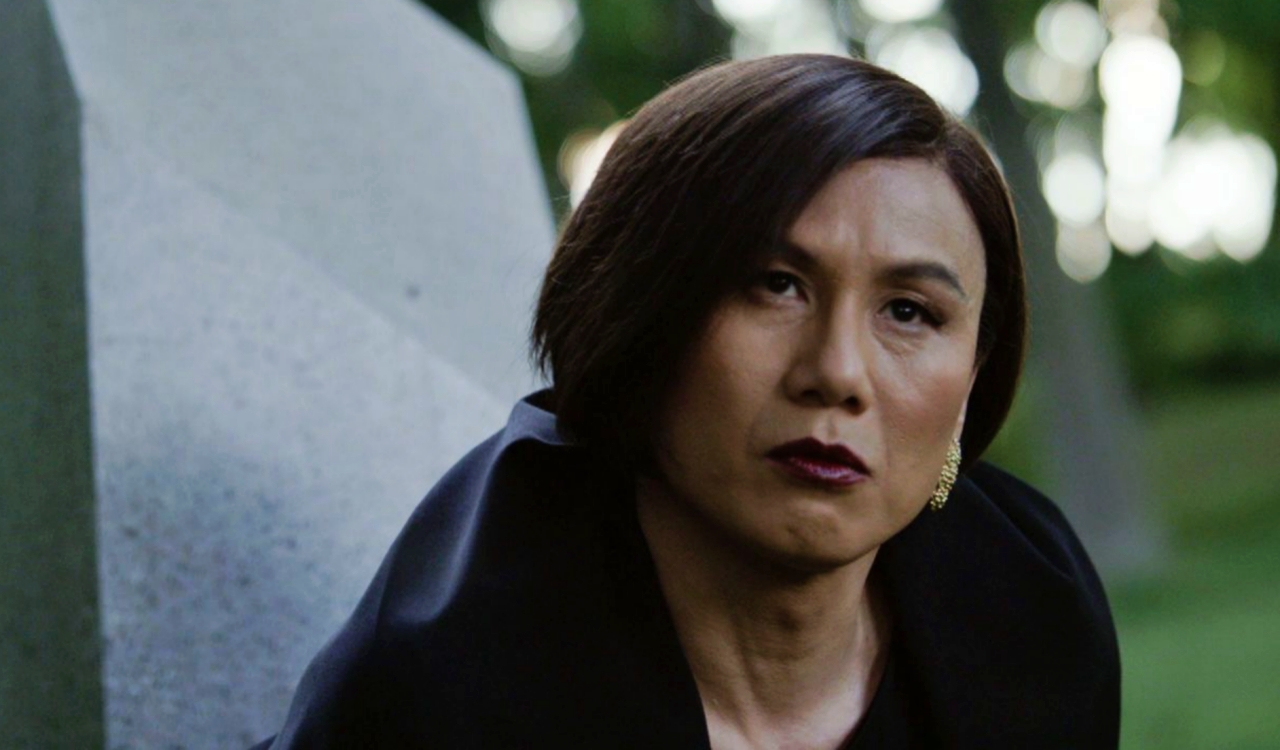If you haven’t seen Mr. Robot, you’re missing out on the best villain in television history. Mr. Robot constantly fills me with wonder. Out of the long list of reasons why I love it so much, there’s no question which character makes the show for me. Whiterose.
She satisfies what fans want from villains. Fans like villains who win us over. We set the bar for villains at “bad, but understandable.” If that’s what goes into a good villain now, Whiterose is the ideal model.
I’m not calling Whiterose the best out of pure admiration. I have reasons for feeling so certain. When studying to become a literary critic they teach you to forget about what you like or don’t like because it’s irrelevant.
The only remaining opinions are the ones you can support by pointing to the story and saying “here’s the part that makes me feel this way.”
Since it’s clear what a villain needs to be, it’s just a matter of showing why Whiterose checks all the boxes. It comes down to 7 reasons.
Whiterose’s Motivations Are Never Fully Clear

First, they have to want something. Second, they have to try to get it. Third, they have to know something we don’t.
Usually, the mystery is either their motivation or their goal. It can be both, but that’s a fine line to walk. If the audience is kept in the dark for too long, they’ll simply lose interest.
Whiterose, though, walks that line perfectly. In the beginning, we think her motivations are either purely financial or purely out of spite for E Corp. We don’t know what her end game is. We just know that there is one. Later, we find out her goal: get her project out of Washington Township and into the Congo.
As soon as we learn that, however, we realize we know nothing about the project, so we’ve lost track of her motivations again.
When the motivations are mysterious or unknown, the audience falls in love. There’s no greater pull for us than the suspense of an answer dangled just close enough in front of us for us to taste it, but never get a bite. Mr. Robot executes this carrot-and-stick balance perfectly.
Whiterose Feels Plausible, It Feels Like She Might
Be Out There…Somewhere

Whiterose straddles the fine line between extraordinary and supernatural. Let’s face it. We’re fascinated by stories of people who lead double lives. The gruesome killers whose neighbors get interviewed and say “I never would’ve thought… he seemed so normal.” We can’t get enough of those stories.
When we have plenty of people in the real world who live lives just as duplicitous as the ones in Mr. Robot, is Whiterose’s double identity all that hard to believe?
I’ll put it another way. There’s a real-world version of Whiterose out there somewhere. Knowing this, watching Whiterose makes me forget that I’m watching a fictional story.
Whiterose Is A Silent Killer

The suspense keeps us glued to our seats even when what we’re watching terrifies us. It’s when we know something’s coming, but we don’t know what.
I think it gives us a much more solidified concept of a villain’s real power when we realize that they’ve been one step ahead of us the whole time. That’s why when Elliot discovers White Rose’s successful attack on 71 different E Corp buildings took place while he thought he was foiling her plan right out from under her, the audience experiences Elliot’s shock with him.
Mr. Robot lets the horror dawn on us as it dawns on him.
B.D. Wong Brings Mr. Robot To Life

You can watch the scene using the link in the image caption.
The namesake line of the scene is when she tells Elliot, “Don’t make me laugh.” She delivers the line with such genuine effect that instead of it landing as a cliche figure of speech, it sounds like a sincere request. Not only does Wong bring passion to her, but he also gives Whiterose her cold, callous stability.
Part of what makes her seem so ruthless, after all, is the ease with which she maintains her poker face.
Humans become uncomfortable when we can’t read facial expressions. In theoretical psychoanalysis, writers speak in terms of “the gaze.” The gaze is when we see something looking at us and we can tell that it sees us. More importantly, we can tell that it’s thinking something about us. However, the gaze shows no expression.
It results is a dissonance in our minds. The gaze gives us no expression to analyze, but somehow the absence of information lets us conclude.
Mr. Robot gives us the pleasure of encountering the gaze, and it couldn’t be possible without B.D. Wong’s incredible talent.
Whiterose Is A Trans-Woman Who Refuses To Be A Token

It’s hard to imagine exactly how Whiterose could ever be a true villain for LGBTQ+ audiences. Why? She’s legitimately the most powerful person on Earth in Esmail’s universe, and she’s a member of one of the world’s most widely and wrongly demonized group of humans: transgender and non-binary persons.
Let’s ask ourselves again. What makes a hero in Mr. Robot? Nearly every hero is someone who either suffers a great loss early in life, or is excluded from the normal societal rites of passage into adulthood, and who later become a shaper of that very society.
Whiterose dedicates her entire life to rising to political power so that she and her truest love may flee their oppressive home and be free in a land that will accept them. Then, because her love can no longer take it, she takes her own life. Thus, Whiterose becomes the ruler of the world from behind the scenes.
Her machine is Whiterose’s mechanism for reshaping society, or in the language of Mr. Robot, save the world. When she fails, she goes out on her terms. She owns her own life up until the last second.
She’s Gorgeous

This woman is serving you Miranda Priestly with a B.S. in Comp Sci, Opulent Queen of the World fantasy. Whenever friends ask if they should watch Mr. Robot, I always recall the scene where White Rose shows Dom all those dresses in her closet.
I can’t get over the ferocity of inviting an FBI agent into your empire, just to show them your clothes. It’s like she’s saying “Hey, Dom. Can I show you my dresses? I know you spend your nights having cybersex with strangers like a loser, but you don’t have to dress like one, too.”
She’s Both Cold And Warm

While Angela sits with Price and weeps, realizing that the thousands of deaths she made possible by assisting in Whiterose’s hack were meant to be nothing more than a petty dig at one of Whiterose’s adversaries, Whiterose relaxes in her spa.
At the same time, she calmly explains to her assistant Grant that his time on this Earth has come to an end. Yet this is no cold-hearted farewell. Instead, she speaks with emotional regret. We see that Whiterose doesn’t see herself discarding of a useless asset.
Instead, she’s simply making a pragmatic decision that, to her, is an unfortunate necessity.



